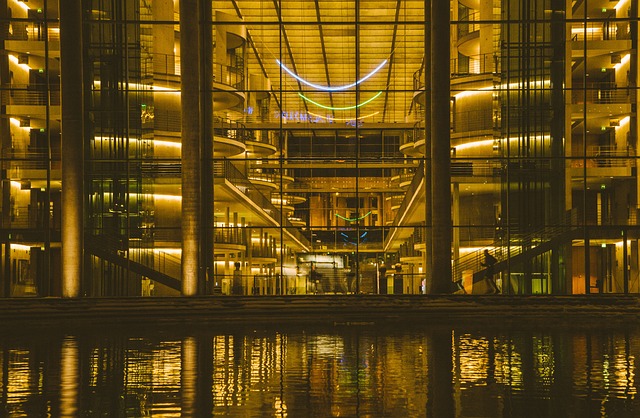The Future of Hotel Bookings: Trends to Watch

The hotel booking industry is undergoing a significant transformation, driven by technological advancements, shifting consumer preferences, and global events like the COVID-19 pandemic. As travelers become more tech-savvy and demand greater convenience, personalization, and sustainability, hotels and booking platforms are adapting to meet these expectations. From AI-driven recommendations to contactless check-ins, the future of hotel bookings is set to be faster, smarter, and more customer-centric.
In this article, we’ll explore the key trends shaping the future of hotel bookings and how they will redefine the way travelers plan and book their stays.
Why Is the Hotel Booking Industry Evolving?
Several factors are driving innovation in the hotel booking process:
- Technological Advancements : Tools like artificial intelligence (AI), machine learning, and blockchain are streamlining operations and enhancing user experiences.
- Changing Consumer Expectations : Travelers now expect seamless, personalized, and flexible booking experiences.
- Post-Pandemic Shifts : The pandemic accelerated trends like contactless services, remote work travel, and health-conscious accommodations.
- Sustainability Concerns : Eco-friendly practices and green certifications are becoming top priorities for environmentally conscious travelers.
- Increased Competition : Online travel agencies (OTAs), direct booking platforms, and alternative lodging options like Airbnb are intensifying competition in the hospitality sector.
These forces are reshaping traditional practices and creating opportunities for innovation in hotel bookings.
1. AI-Powered Personalization
Artificial intelligence is revolutionizing the hotel booking experience by offering hyper-personalized recommendations tailored to individual preferences.
Key Innovations
- Dynamic Pricing : AI algorithms analyze real-time data, such as demand, seasonality, and competitor rates, to adjust room prices dynamically.
- Personalized Recommendations : AI-powered platforms suggest hotels, room types, and amenities based on past bookings, search history, and traveler profiles.
- Chatbots and Virtual Assistants : AI-driven chatbots provide instant responses to queries, assist with bookings, and offer 24/7 customer support.
Impact
- Enhances the customer experience by delivering relevant suggestions and offers.
- Increases conversion rates for hotels and booking platforms by targeting the right audience.
- Reduces operational costs by automating repetitive tasks like answering FAQs.
2. Direct Booking Platforms and Loyalty Programs
Hotels are increasingly encouraging guests to book directly through their websites rather than relying on third-party OTAs.
Why Direct Bookings Matter
- Lower Costs : By cutting out intermediary fees, hotels retain more revenue per booking.
- Better Data Collection : Direct bookings allow hotels to gather valuable insights about their customers for targeted marketing.
- Enhanced Loyalty Programs : Many hotels offer exclusive perks, discounts, or rewards for direct bookings, incentivizing repeat stays.
Examples
- Marriott Bonvoy and Hilton Honors reward members with points redeemable for free nights, upgrades, and other benefits.
- Smaller boutique hotels are adopting similar strategies to compete with larger chains.
Impact
- Strengthens brand loyalty and fosters long-term relationships with guests.
- Helps independent hotels reduce dependency on OTAs.
- Encourages transparency and trust between hotels and travelers.
3. Contactless and Mobile-Centric Experiences
The pandemic accelerated the adoption of contactless technologies, which are now becoming standard in the hospitality industry.
Applications
- Mobile Check-In/Check-Out : Guests use their smartphones to bypass front desks and access rooms via digital keys.
- Digital Wallets : Payment processes are streamlined through apps like Apple Pay or Google Wallet.
- Virtual Concierge Services : Chatbots or apps provide information about hotel amenities, local attractions, and dining options.
Impact
- Improves safety and hygiene, addressing post-pandemic concerns.
- Enhances convenience for tech-savvy travelers who prefer self-service options.
- Reduces staffing needs at front desks, allowing hotels to allocate resources elsewhere.
4. Sustainability and Eco-Friendly Practices
Travelers are increasingly prioritizing sustainable accommodations, prompting hotels to adopt eco-friendly initiatives.
Examples
- Green Certifications : Hotels earn certifications like LEED (Leadership in Energy and Environmental Design) or Green Key to showcase their commitment to sustainability.
- Energy-Efficient Operations : Smart thermostats, LED lighting, and water-saving fixtures reduce environmental impact.
- Carbon Offset Programs : Some booking platforms allow travelers to offset the carbon footprint of their stay during checkout.
Impact
- Attracts environmentally conscious travelers willing to pay a premium for sustainable stays.
- Aligns with global efforts to combat climate change and reduce waste.
- Differentiates hotels from competitors in crowded markets.
5. Flexible Booking Policies
Flexibility has become a top priority for travelers, especially in uncertain times. Hotels and booking platforms are responding by offering more adaptable policies.
Trends
- Free Cancellation : Many platforms now offer flexible cancellation windows, allowing guests to modify or cancel reservations without penalties.
- Date Change Options : Travelers can reschedule bookings without losing deposits.
- Subscription Models : Companies like Selina and Inspirato Pass offer subscription-based memberships that include unlimited hotel stays for a monthly fee.
Impact
- Builds trust and confidence among hesitant travelers.
- Appeals to remote workers and digital nomads who need flexibility in planning.
- Helps hotels maintain occupancy rates during off-peak seasons.
6. Integration of Alternative Accommodations
The rise of platforms like Airbnb and Vrbo has forced traditional hotels to rethink their offerings and integrate alternative lodging options.
Examples
- Hybrid Models : Some hotels partner with short-term rental providers to offer apartments, villas, or shared spaces alongside traditional rooms.
- Extended Stays : Hotels are catering to remote workers and long-term guests by providing apartment-style accommodations with kitchenettes and workspaces.
Impact
- Expands market reach by appealing to diverse traveler segments.
- Competes effectively with vacation rentals and homestays.
- Maximizes revenue potential by utilizing underused properties.
7. Blockchain Technology for Transparency
Blockchain is emerging as a game-changer in hotel bookings, ensuring secure and transparent transactions.
Use Cases
- Smart Contracts : Automate payments and enforce terms between hotels, OTAs, and travelers.
- Loyalty Tokens : Reward customers with blockchain-based tokens that can be redeemed across multiple brands or platforms.
- Fraud Prevention : Securely store guest data and prevent unauthorized access.
Impact
- Reduces reliance on intermediaries, lowering transaction costs.
- Builds trust by providing verifiable records of bookings and payments.
- Offers innovative ways to engage and reward loyal customers.
8. Voice Search and Smart Assistants
Voice-activated devices like Amazon Alexa and Google Assistant are influencing how travelers search for and book hotels.
How It Works
- Users can ask smart assistants to find available hotels, compare prices, and complete bookings using voice commands.
- Integration with virtual assistants allows hotels to send reminders, confirmations, and special offers directly to users’ devices.
Impact
- Simplifies the booking process for hands-free convenience.
- Appeals to younger, tech-savvy generations accustomed to voice-controlled technology.
- Provides an additional touchpoint for hotels to interact with guests.
9. Immersive Technologies: AR and VR
Augmented reality (AR) and virtual reality (VR) are transforming how travelers preview and select accommodations.
Applications
- Virtual Tours : Guests can explore rooms, lobbies, and amenities in 3D before booking.
- AR Room Previews : Apps overlay furniture and decor options onto existing spaces, helping guests visualize upgrades.
- Destination Exploration : VR headsets let users “visit” destinations virtually, inspiring travel decisions.
Impact
- Boosts confidence in booking by providing realistic previews of properties.
- Reduces cancellations and dissatisfaction caused by unmet expectations.
- Enhances marketing efforts by showcasing unique features of hotels and destinations.



